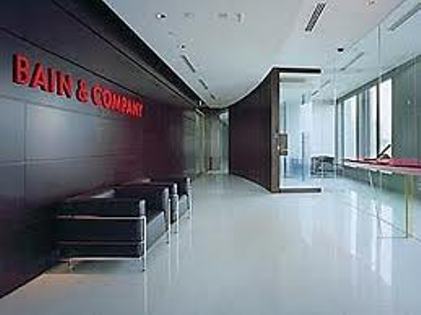SAGAMITE: The Management Consulting Industry – The integrated advisory landscape.

Sagamite is a bachelors graduate from one of the UK’s elite universities after an early life in Nigeria. He is an experienced management consultant that has worked with firms in a diverse range of industries both in public and private sector. His experience provides him with a catalogue of versatile and arcane knowledge. His current interests include logical structure of opinions/arguments, entrepreneurship and human psychology. He prides himself on his organic, objective and independent thinking, so the audience should expect a significant number of his articles to be contra-popular belief. He is one of Nigeria’s leading objective-Contrarian thinkers about life’s generally accepted conventional wisdom
One of the things some consulting applicants have struggled with during their interest and application to firms in the industry is understanding the kind of work each consulting firm does and how it is different from some other consulting firms. I will attempt to provide some information that can be helpful for those interested in the consulting industry.
Now let’s look at a list of management consulting work before we go into what firms in the industry do.
Strategy consulting – e.g. “Which new country should a firm expand into?” “How does the operating model of a firm enable it compete effectively in its industry?” etc
Operations consulting – e.g. “How can a firm improve effectiveness of its customer service capability?” “How can a firm save X% from its supply chain cost?” etc
Transformation (Strategic Change) consulting – e.g. “How should a firm develop a new organisational culture?” “How can a firm manage and deliver a programme of change to transform the organisation?”
IT (Technology) consulting – e.g. “How should a firm align its IT capaility with the firms strategy?” “How can a firm leverage social media to enhance its market reach?”
Systems integration – e.g. “How can a firm put in place a technology that helps it reduce fraud?” “How can a government ministry install an IT system that enable it improve its services?”
Outsourcing Services – e.g. “Which provider should a firm Outsource some of its HR services to?” and taking over of some aspects of a firms processes.
Traditionally the firms in the consulting industry have normally be categorised into 3 categories:
1. Strategy consulting
2. General advisory (Operations and Transformation consulting)
3. Full Service
These areas are what are called management consulting, with the first sometimes is specifically called Strategy Consulting.
While strategy consulting tends to look at the long-term direction and the major competitive opportunities for a firm, while management consulting tends to include medium term considerations and comprises looking at the way strategy is implemented (strategic change/transformation) or how a function of a business can be more efficient i.e. better, cheaper and/or faster (operations or IT consulting) in helping a firm remain competitive. Basically tactical work, hence management consulting can include things like cultural change management, finance transformation, IT assurance, enterprise risk management, programme and project management, customer relationship management, business process re-engineering, supply chain optimisation etc. Many of these consulting work are popularly called operations, transformation or IT consulting.
Hence Management Consulting tends to include strategy and operations consulting, as well as some IT consulting. These three are what general advisory firms normally do. Strategy consulting firms tend to mainly look at how their clients address competition, growth, revenue generation and products issues. Which are more long term things.
In reality, general advisory and full service firms tend to get very little strategy work, especially corporate strategy work. The type of strategy work they get are mainly business and functional strategy. Full service tend to get strategy work that only involves assessment of strategy (not formulation of strategy) and then they look at how to improve it rather than build it from scratch. Normally, the strategy work full service firms get tends to be ones that lead to improvement through operations, transformation and IT consulting work or systems integration. E.g. our sales staff are not performing well enough. Then they will help you transform the culture, reviewing marketing techniques and then use IT to optimise processes to improve the performance after they have done some strategic assessment of why the sales force is under-performing.
The full service consulting firms go further than both Strategy Consulting and General Advisory firms. They are also heavily IT-focused. They try to help firms implement big IT projects (hence a lot of IT consulting and systems integration), as well as trying to even help you take over part of your business that is not your main focus but plays a big part e.g. IT service centres (this is what is called outsourcing).
My reference to taking over part of your non-core business (i.e. one that is not a main focus), I do not mean they take over a strategic business unit (SBU), I mean they help you take over a function like IT services, Applications (software development), Supply Chain, HR, Finance etc.
Many companies like to focus on what they are good at and which is core to their performance in their industry. Full Service firms help them take over functions that are complex and would take too much of their (the company’s) time if they try to be good at it. E.g. a mining company wants to focus on its engineering but it also needs an effective supply chain. This supply chain can be outsourced to a full service firm who have a wealth of experience doing it and can probably do it at a far lower cost because of their experience curve and economy of scale.
What primarily differentiates Full Service firms for General Advisory (Operations and Transformation consulting) firms is that Full Service Firms engage in huge systems integration and outsourcing work.
So, to summarise, while Strategy consulting firms sticks mainly to strategy, general advisory firms stick with strategy and operations consulting with some IT consulting. Full service firms do all, plus implementing IT systems and helping you manage part of your business. Hence, as a whole, the industry offers an integrated consulting services across the whole activities of business from decision formulation to detailed implementation.
So, to summarise, while Strategy consulting firms sticks mainly to strategy, general advisory firms stick with strategy and operations consulting with some IT consulting. Full service firms do all, plus implementing IT systems and helping you manage part of your business. Hence, as a whole, the industry offers an integrated consulting services across the whole activities of business from decision formulation to detailed implementation.
Examples of Strategy Consulting firms are Mckinsey, BCG, Bain, Roland Berger, AT Kearney, L.E.K Consulting, OC&C, Mars & Co etc
Examples of General Advisory firms are Oliver Wyman, Deloitte Consulting, EY Advisory, PWC Consulting, KPMG Consulting, PA Consulting, Arthur D. Little etc
Examples of Full Service firms are Accenture, Capgemini, Booz Allen Hamilton, IBM Consulting etc
Examples of Full Service firms are Accenture, Capgemini, Booz Allen Hamilton, IBM Consulting etc
Some may, in my opinion, mistakenly term some IT Service Providers like Hitachi Consulting, Logica, Tata Consulting Services and co as management consulting firms, but in my view, they really are not. They just mainly held firms with their IT or developing systems.
Also, there are other consulting firms that offer consulting services that, in my opinion are not really management consulting because I feel their focus is quite narrow to qualify for the “management” tag. Yet, what they do is still consulting. For example FTI consulting, NERA Consulting, Mercer, AlixPartners, Schlumberger Business Consulting, Towers Watson or Alvarez and Marsal.
Now looking at the future, the dynamics are changing as boundaries are being encroached.
To sustain their revenue, many strategy firms are now developing transformation and operations consulting capability. Even the previous snobby Mckinsey that prided itself on being a pure strategy consulting house has set up an IT advisory unit called Business Technology Office (BTO). Many strategy consulting firms have struggled to survive and have been acquired by General Advisory and Full Service firms. The previously top strategy firm, Booz & Co, have merged with PwC Consulting. While Monitor Group was snapped up by Deloitte Consulting.
As for those wanting to get into consulting, consulting is probably the only industry that is virtually strictly dependent on your intelligence. The first basics of what you need to do is to understand how businesses in their industry work (what are their business models, operating models and value chains) and be intelligent (not being product of a failed education, no-fact thinking and beer-parlour arguments). Someone that is intelligent, seeks knowledge and is logical.
Let your cover letter in your applications reflect these two things (understanding of businesses and high intellect) and you will have a chance. That is what would be tested in interviews.
Let your cover letter in your applications reflect these two things (understanding of businesses and high intellect) and you will have a chance. That is what would be tested in interviews.
Established in March 2013, JarusHub is a Nigerian information hub with focus on career and management. It is rated Nigeria's most authoritative destination for online career resources. It parades an array of Nigerian professionals who share their career experiences with a view to bridging career information gap and mentoring a generation to success. Whether you're a student, a recent graduate or an established professional, or even an executive, you will always find something to learn on JarusHub. All enquiries to jarushub@gmail.com or 0808 540 4500. Facebook: www.facebook.com/jarushub; Twitter: @jarushub or @mcjarus.
CREGITAL INTERVIEW COACHING
April 18, 2018Career: Investment Banking vs Investment Management
April 16, 2018
2 comments
Let us have your say by leaving a comment belowCancel reply
Recommended For You
-
Hidden Job Market: How to Get Jobs by Referral
May 2, 2018 -
Top 5 Donts of an Assessment Center
July 21, 2017
© Copyright JarusHub. All Rights Reserved.











Hello SAGAMITE,
Great pointers on management consulting.Great content looking forward for more form your end.You can also also visit http://www.ascentaz.com A leading business consulting and management firm,providing business and management consulting solutions to a variety of international and domestic clients across the industries.
Business management advisory firms provide experienced suggestions for efficient use of company resources so that a good development results